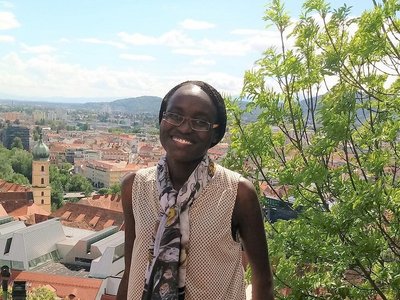

Her study was motivated by the steady conversion of wetlands to agriculture in East Africa and the lack of consideration on the implications on greenhouse gas emissions (methane, carbon dioxide, and nitrous oxide). Her findings indicate that wetland conversion to farmland encourages methane uptake regardless of the season and increases nitrous oxide emissions during the dry season. Carbon dioxide emissions are not influenced by wetland land-use change to farmland but season. Based on the global warming potentials of the gases, the conversion of wetlands to farmland may pose an increased environmental threat.
For further information refer to the publication below:
Risper Ajwang' Ondiek, Daniel S. Hayes, Damaris Njeri Kinyua, Nzula Kitaka, Erwin Lautsch, Paul Mutuo, Thomas Hein. (2021). Influence of land-use change and season on soil greenhouse gas emissions from a tropical wetland: A stepwise explorative assessment. Science of The Total Environment. Volume 787 https://doi.org/10.1016/j.scitotenv.2021.147701
Risper Ajwang’ Ondiek has a BSc in Applied Aquatic Science and holds an MSc in Limnology and Wetland Management from BOKU University, Austria, Egerton University, Kenya, and IHE Delft, the Netherlands. Before commencing her PhD, funded with an APPEAR scholarship, she worked for Egerton University as a part-time lecturer and research assistant under the Nile Ecosystems Valuation for Wise Use Project. She is passionate about the sustainable utilization of wetlands.
